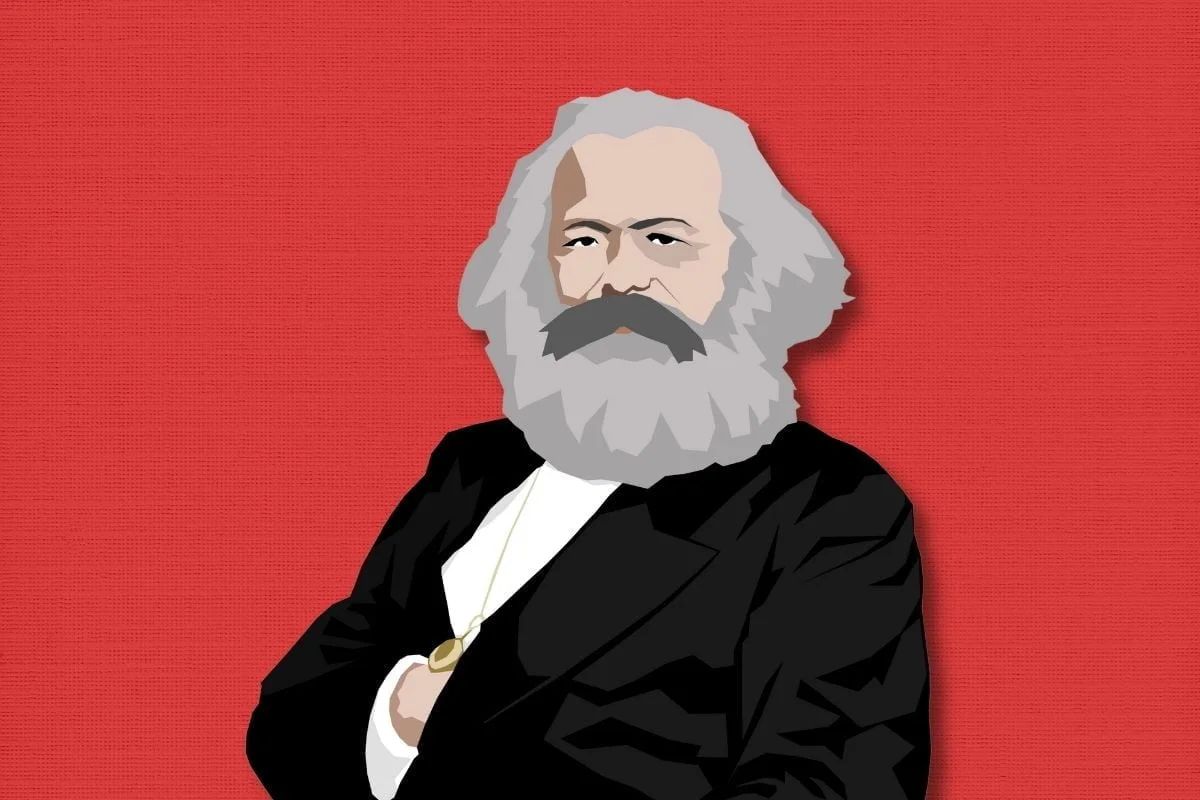
Marxism is a powerful framework that has shaped modern thought and politics. Developed by Karl Marx and Friedrich Engels, it critiques capitalism and envisions a society free from exploitation. Marx's life, from his birth in 1818 in Trier, Germany, to his exile in London, is filled with events that influenced his revolutionary ideas. His collaboration with Friedrich Engels, his critique of religion, and his concept of class struggle are just a few aspects of his extensive work. Marxism isn't just about economics; it touches on philosophy, sociology, and even literature. Curious about how these ideas have evolved and impacted the world? Let's dive into 40 key facts that encapsulate the essence of Marxism.
Key Takeaways:
- Karl Marx, the influential thinker behind Marxism, faced personal struggles but left a lasting impact on economics, sociology, and politics with his ideas on capitalism, class struggle, and revolutionary change.
- Marx's vision for a communist society, critique of capitalism, and influence on various academic fields continue to shape contemporary thought and political movements worldwide.
Karl Marx: The Man Behind Marxism
Karl Marx, the mind behind Marxism, lived a life full of intellectual pursuits and personal struggles. His ideas have shaped political and social thought for over a century.
- Karl Marx's Early Life: Born on May 5, 1818, in Trier, Prussia (now Germany), Marx's paternal ancestors were rabbis. His father, Heinrich Marx, converted to Lutheranism in 1816 to avoid anti-Semitic laws.
- Marx's Family Background: Influenced by Enlightenment thinkers, Marx's father was a successful lawyer who taught him at home until he was 12. Marx then attended the Friedrich-Wilhelm Gymnasium, where he encountered liberal ideas.
- Marx's Education: His high school was raided by authorities in 1832 due to its liberal teachings. This event further politicized Marx, who later attended the University of Bonn and then the University of Berlin.
- Marx's Dueling Incident: During his university days, Marx participated in a duel with a young military cadet. Although he lost, he suffered only a minor wound under his left eye, reflecting his impulsive nature.
- Marx's Relationship with Friedrich Engels: Marx met Friedrich Engels, a wealthy industrialist, in Paris in 1844. Engels became a lifelong friend and financial supporter, aiding Marx in publishing his works.
Marx's Intellectual Contributions
Marx's writings and theories have left an indelible mark on various fields, from economics to sociology.
- Marx’s Writings on Capitalism: Das Kapital, Marx’s magnum opus, was first published in Russia despite censorship policies. The censors believed it was a "strictly scientific work" that few would read or understand.
- Marx’s Critique of Religion: Marx famously stated that "religion is the opium of the people," arguing that religion distracts people from social and economic injustices.
- Marx’s View on Alienation: He argued that capitalism alienates workers from their humanity by turning them into mere commodities, a central theme in Das Kapital.
- Marx’s Concept of Class Struggle: Marx believed society is divided into two main classes: the bourgeoisie (owners of production) and the proletariat (workers). He argued that the proletariat would eventually rise up against the bourgeoisie in a revolution.
- Marx’s Influence on Socialism: His ideas have significantly influenced socialist movements worldwide, shaping ideologies and political actions.
Personal Life and Struggles
Despite his intellectual achievements, Marx faced numerous personal challenges.
- Marx’s Personal Life: Marx married Jenny von Westphalen, a member of the Prussian aristocracy, despite their social differences. This marriage was scandalous at the time due to their differing backgrounds and religions.
- Marx’s Ancestral Heritage: Ancestrally Jewish, Marx's father converted to Lutheranism before Karl was born, likely to avoid anti-Semitic laws and social constraints.
- Marx’s Journalism Career: An accomplished journalist, Marx wrote for various radical newspapers, including Rheinische Zeitung and Vorwärts. He later founded his own newspaper, Neue Rheinische Zeitung, which was suppressed by authorities.
- Marx’s Financial Struggles: Throughout his life, Marx faced significant financial struggles, relying heavily on Engels for support, which allowed him to continue his work.
- Marx’s Exile in London: Forced to flee to London in 1849 due to his radical activities, Marx built a life there with his wife and continued to write and engage in political activities until his death in 1883.
Marx's Philosophical and Economic Theories
Marx's theories have influenced various academic disciplines, providing a framework for understanding social and economic systems.
- Marx’s Grave in Highgate Cemetery: Marx was buried in London’s Highgate Cemetery in a modest plot reserved for atheists and secularists. His grave was later moved to a new site, and a portrait bust was erected by the British Communist Party.
- Marx’s Influence on Philosophy: His ideas have influenced various philosophical traditions, including humanist Marxism and critical theory. His critique of Hegel’s philosophy is particularly notable.
- Marx’s Concept of Dialectics: Marx developed a dialectical approach to understanding history and society, emphasizing conflict between opposing forces as a driving force behind historical change.
- Marx’s View on Alienation in Capitalism: He argued that capitalism alienates workers by turning them into mere commodities, a fundamental critique of capitalist systems.
- Marx’s Critique of Hegel’s Philosophy: Marx’s critique of Hegel’s philosophy is a significant part of his early work, arguing that Hegel’s idealist philosophy failed to account for the material conditions of society.
Historical Materialism and Class Struggle
Marx's concepts of historical materialism and class struggle are central to his critique of capitalism and vision for a socialist future.
- Marx’s Concept of Historical Materialism: Marx developed the concept of historical materialism, positing that social and economic conditions shape historical events, emphasizing the role of class struggle.
- Marx’s Influence on Economics: His ideas have significantly influenced economic theory, particularly in Marxist economics and critical theory. His critique of capitalism remains a cornerstone of socialist thought.
- Marx’s Concept of the Proletariat: Marx believed the proletariat would eventually rise up against the bourgeoisie in a revolution, central to his theory of class struggle.
- Marx’s Relationship with the Working Class: He believed the working class was key to revolutionary change, arguing that workers were exploited by capitalists and their collective action could bring about a socialist revolution.
- Marx’s Critique of Capitalism: Marx’s critique of capitalism is a central theme in his work, arguing that capitalism creates alienation, exploitation, and inequality.
Vision for a Communist Society
Marx envisioned a future where exploitation and class struggle would be eradicated, leading to a communist society.
- Marx’s Concept of Communism: Marx envisioned a communist society with no private property and no exploitation, believing this society would be achieved through a proletarian revolution.
- Marx’s Influence on Politics: His ideas have significantly influenced political movements worldwide, shaping socialist ideologies and political actions.
- Marx’s Personal Struggles: Despite his intellectual achievements, Marx faced significant personal struggles, including financial difficulties and health issues.
- Marx’s Legacy: Marx’s legacy is complex and multifaceted, remembered as a revolutionary thinker who challenged the status quo and advocated for social justice.
- Marx’s Impact on Literature: His writings have influenced literary theory and criticism, with his concept of alienation and critique of capitalism applied to literary analysis.
Ideology and Sociology
Marx's ideas have also shaped our understanding of ideology and social structures, influencing various academic fields.
- Marx’s Concept of Ideology: Marx believed ideology shapes our understanding of the world, arguing that ideologies serve to maintain the power of the ruling class and distract people from their exploitation.
- Marx’s Influence on Sociology: His ideas have significantly influenced sociological theory, shaping studies on social inequality and class structure.
- Marx’s Relationship with Engels: Engels provided financial support and intellectual collaboration, helping Marx publish his works and develop his ideas.
- Marx’s Concept of False Consciousness: Marx believed people under capitalism have a false consciousness of their true interests, maintained by ideologies serving the ruling class.
- Marx’s Influence on Philosophy of History: His concept of historical materialism posits that social and economic conditions shape historical events, emphasizing the role of class struggle.
Cultural Critique and Revolutionary Change
Marx's critique of bourgeois culture and his vision for revolutionary change continue to resonate in contemporary thought.
- Marx’s Critique of Bourgeois Culture: Marx critiqued bourgeois culture for its superficiality and lack of authenticity, arguing it serves to maintain the status quo and distract people from their exploitation.
- Marx’s Concept of Revolutionary Change: He believed revolutionary change is necessary to bring about a socialist society, arguing the proletariat must rise up against the bourgeoisie.
- Marx’s Influence on Feminist Theory: His ideas have influenced feminist theory, particularly in Marxist feminism, analyzing the exploitation of women under capitalism.
- Marx’s Legacy in Eastern Europe: His ideas had a significant impact on Eastern Europe, particularly during the Soviet era, central to Marxist-Leninist ideology.
- Marx’s Enduring Influence: Marx’s ideas continue to influence contemporary thought and politics, shaping debates on economic inequality and social justice.
Marxism's Lasting Impact
Marxism has left a lasting mark on modern thought and politics. Karl Marx's ideas about class struggle, capitalism, and alienation continue to shape debates on economic inequality and social justice. His partnership with Friedrich Engels was crucial, providing both intellectual and financial support. Despite facing personal and financial struggles, Marx's work has influenced various fields, from philosophy and economics to sociology and literature. His vision of a communist society without exploitation remains a powerful ideal for many. Even today, Marx's critiques of capitalism and his concepts like historical materialism and false consciousness are relevant. Whether you agree with his ideas or not, there's no denying Marx's profound influence on the world. His legacy continues to inspire and challenge us to think critically about the structures that shape our lives.
Frequently Asked Questions
Was this page helpful?
Our commitment to delivering trustworthy and engaging content is at the heart of what we do. Each fact on our site is contributed by real users like you, bringing a wealth of diverse insights and information. To ensure the highest standards of accuracy and reliability, our dedicated editors meticulously review each submission. This process guarantees that the facts we share are not only fascinating but also credible. Trust in our commitment to quality and authenticity as you explore and learn with us.


